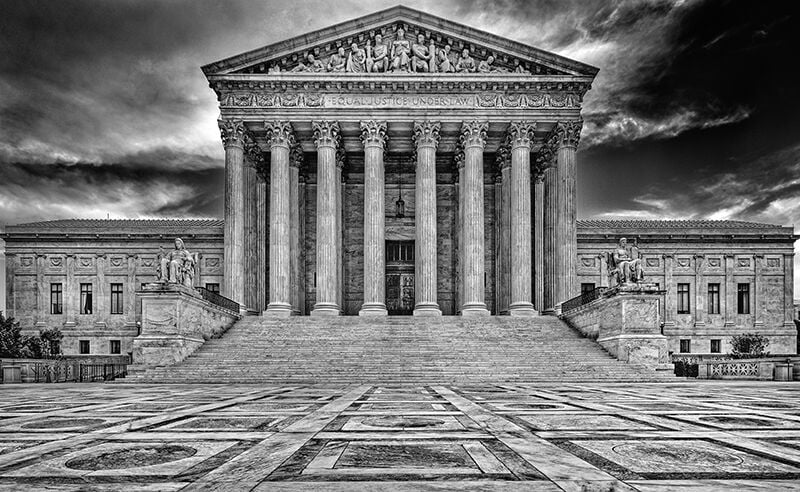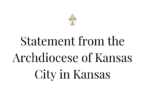 Supreme Court decisions could have far-reaching consequences
Supreme Court decisions could have far-reaching consequences
by Joe Bollig
joe.bollig@theleaven.org
KANSAS CITY, Kan. — Like the slice of a knife, the U.S. Supreme Court cut down state laws blocking same-sex marriage and established it as a new and fundamental constitutional right.
On June 26, a divided U.S. Supreme Court ruled by a narrow 5-4 margin that same-sex marriage was legal nationwide in the case of Obergefell v. Hodges.
The majority based its opinion on a new reading of the Fourteenth Amendment, specifically the Due Process and Equal Protection Clauses.
All states must now issue marriage licenses to homosexual couples and recognize such marriages performed in states that have already legalized them.
Archbishop Joseph E. Kurtz of Louisville, president of the U.S. Conference of Catholic Bishops and ordinary of the Archdiocese of Louisville, called the high court’s decision “a tragic error.”
“Regardless of what a narrow majority of the Supreme Court may declare at this moment in history, the nature of the human person and marriage remains unchanged and unchangeable,” wrote Archbishop Kurtz.
“Just as Roe v. Wade did not settle the question of abortion over 40 years ago, Obergefall v. Hodges does not settle the question of marriage today,” he continued. “Neither decision is rooted in the truth and, as a result, both will eventually fail. Today, the court is wrong again. It is profoundly immoral and unjust for the government to declare that two people of the same sex can constitute a marriage.”
Several other U.S. bishops criticized the same-sex marriage ruling, including Archbishop Joseph F. Naumann. The big question, however, is how this decision will affect the ministries and institutions of the church.
“I don’t think anyone knows the answer to that question, including the court,” said Archbishop Naumann. “I think the court has created a whole series of potential problems with this decision, which could profoundly affect the church’s life.”
For a foreshadowing of potential problems, Archbishop Naumann pointed to a portion of Chief Justice John Roberts’ dissent.
“Respect for sincere religious conviction has led voters and legislators in every state that has adopted same-sex marriage democratically to include accommodations for religious practice,” wrote Justice Roberts.
“The majority’s decision imposing same-sex marriage cannot, of course, create any such accommodations. The majority graciously suggests that religious believers may continue to ‘advocate’ and ‘teach’ their views of marriage,” he continued. “The First Amendment guarantees, however, the freedom to ‘exercise’ religion. Ominously, that is not a word the majority uses.”
Roberts listed areas where the First Amendment rights of religious believers may be threatened: lawsuits over student housing at religious colleges, the loss of tax-exempt status for religious institutions, and lawsuits directed toward religious adoption agencies.
Other commentators have suggested that marriage licensing, employment law, college accreditation and loss of federal education loans and grants could be other problematic areas.
Some religious colleges — including Wyoming Catholic College — were already trying to avoid threats to their religious liberty by refusing to participate in federal student aid programs. For these colleges, the trigger was the abortion and birth control mandates from the Affordable Care Act.
“The issue now is religious freedom,” said Stephen D. Minnis, president of Benedictine College in Atchison.
Although heartened by Justice Anthony Kennedy’s majority decision mention of the rights of religious persons, he appreciated Roberts’ dissent, which pointed out there is an actual constitutional amendment protecting religious rights.
“This will really be an important issue moving forward, especially for Catholic colleges, Catholic high schools and grade schools, and Catholic hospitals,” said Minnis.
“We don’t have married housing, so that’s not an issue for us,” he said. “Federal aid, support and accreditation will be looked at very closely. I am concerned. This will be a very important issue for this college and the country.”






